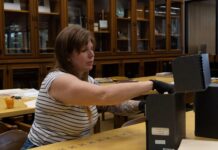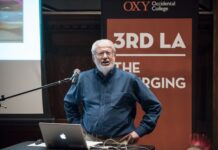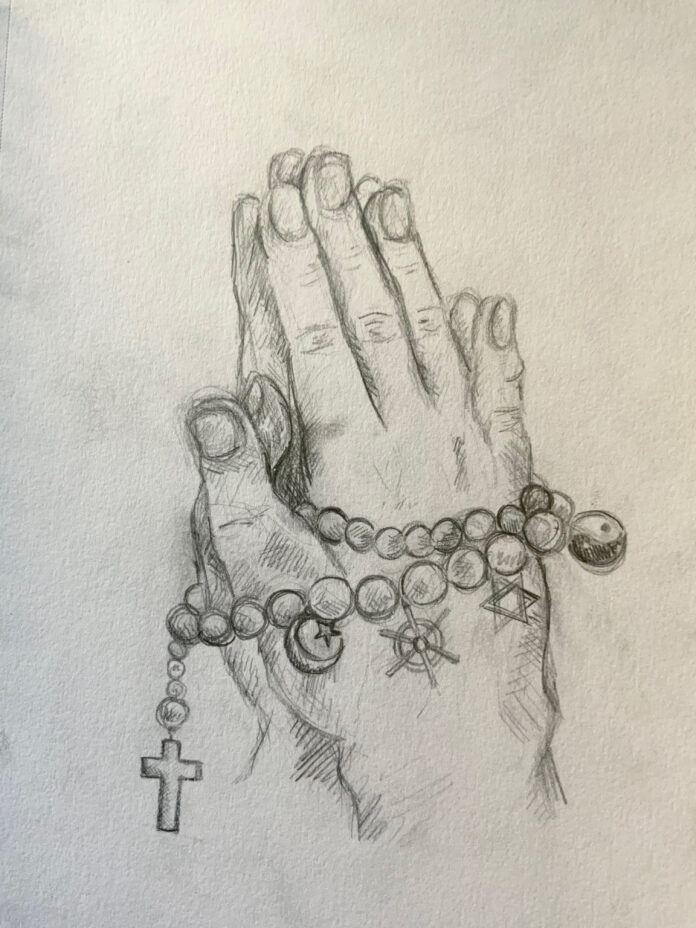I am an Armenian Orthodox Christian woman. When I share my identities on campus, I feel like I have to restrict talking about my Orthodox Christian identity in non-Christian spaces, like the classroom. Christianity in the U.S. — and religion more generally — is often associated with white supremacy. This view largely and unjustly ignores the diverse communities who associate Christianity with their culture. In more “liberal” environments like Occidental, being anti-religion as a form of being anti-West is ignorant to the many non-Western communities who do practice Christianity and religion in their cultures. To speak from my perspective, I will be discussing Christianity and the Middle Eastern and North African/Southwest Asian and North African (MENA/SWANA) communities specifically in this article, but I would like to recognize these stereotypes apply to other religions and cultures in similar and different ways.
Christianity was not initially adopted by or originated in the United States, but was and is essential to the identity of many MENA/SWANA people. We Armenians take great pride that Armenia was the first country in the world to officially adopt Christianity in 301 A.D. The Middle East, North Africa and Southwest Asia have many Christian communities, even though stereotypes in the U.S. of those regions do not highlight them. In the West Bank and Gaza, the Greek Orthodox, Catholic, Assyrian, Armenian Orthodox and Syrian Orthodox Churches are all represented. In Egypt, Copts are the largest minority and are the largest Christian community in the Arab world, ranging from 4.7 to 7.1 million people. Christians in Syria make up at least 10 percent of the population. Lebanon, Jordan, Iraq and Iran also have large Christian communities. Christianity originated in the Middle East and is still the center of many Middle Eastern cultures and their diasporas.
I was raised in a traditional Armenian Orthodox setting. While we did not attend church every Sunday, we did have Bible classes in school and talk about our faith through schooling, in cultural circles and at home. Christianity is not just our religion but our culture. Armenian people celebrate Christmas Jan. 6 instead of the American tradition of Dec. 25, which was created by the West. We all gather at Armenian Orthodox churches for Armenian weddings, baptisms and services.
When I came to Oxy, I quickly realized nobody brought up religion. Before my first Intervarsity Christian Fellowship event my first year, the table of friends I was sitting with asked me where I was going. That was the first time I had the opportunity to talk about my faith, which I had become reluctant about, because of the way my peers talked about religion in class — or, rather, the way they didn’t. It felt like there was something wrong about it. When I did, there was some silence, confusion and awkwardness, but also the beginning of a discussion of religion. During some similar moments, I met other Christians who felt the same way, as they pulled up their sleeves to show me tattoos of faith symbols or those who took out crosses tucked in their shirts. Even in moments when I did not come across another Christian, I sometimes encountered people who were curious and listened to my faith journey. There also have been a few beautiful times when some of these people then became curious for themselves and ended up finding their own faith too. In other cases, the hesitancy to talk about religion transcended into classroom settings and discussions with peers. People talk about and teach Christianity as a religion that is only practiced by white people, especially conservative white people. Some believe Christianity stops progressive values from moving forward. Often its ideals are mocked. I’ve even been in classrooms when professors laughed at “those” people who think God created the world. I should not have to feel like the cross I wear around my neck is a symbol that should be hidden or devalued.
In no way do I dismiss the harms caused in the name of religion and Christianity in particular. There is no justification for the role religion played in Western colonization. But to silence this identity is ignorant to the many communities whose Christianity is our identity and means something very different than the white Christianity stereotyped as American. Because of this assumption, we are constantly pressured to justify ourselves for being Christian. The other option is to stay silent about this part of our identities, in fear that we might be judged. It is not fair to feel like we need to explain away our identities or be silenced. It’s not fair to feel like my faith is something that can be seen as controversial or debatable, when for me, it is simply who I am — it is everything. It is beyond anything I can explain or need to defend. Other Christian MENA/SWANA folks and I tend to rely on each other to feel comfortable enough to talk about our experiences of faith. In doing so, we constantly share the frustration of not being able to share this identity with other peers at Oxy.
It may surprise many Oxy students that there are currently eight religious and spiritual groups on campus. InterVarsity Christian Fellowship/USA for example has over 30 members, according to Weley Lai, the group’s religious advisor, and Athletes InterVarsity Christian Fellowship/USA has 40 members, according to Reece Foy, campus staff minister. There are many Christians on campus whose faith you may not recognize and who are not always associated with stereotypes of religion. In saying this, it is time to begin a conversation around religion at Oxy to make a greater shift of perspective that religion and specifically, Christianity, represents diverse communities and personal identities. Have a conversation and hear out your friend’s faith story — you may just be pleasantly surprised.
![]()



































